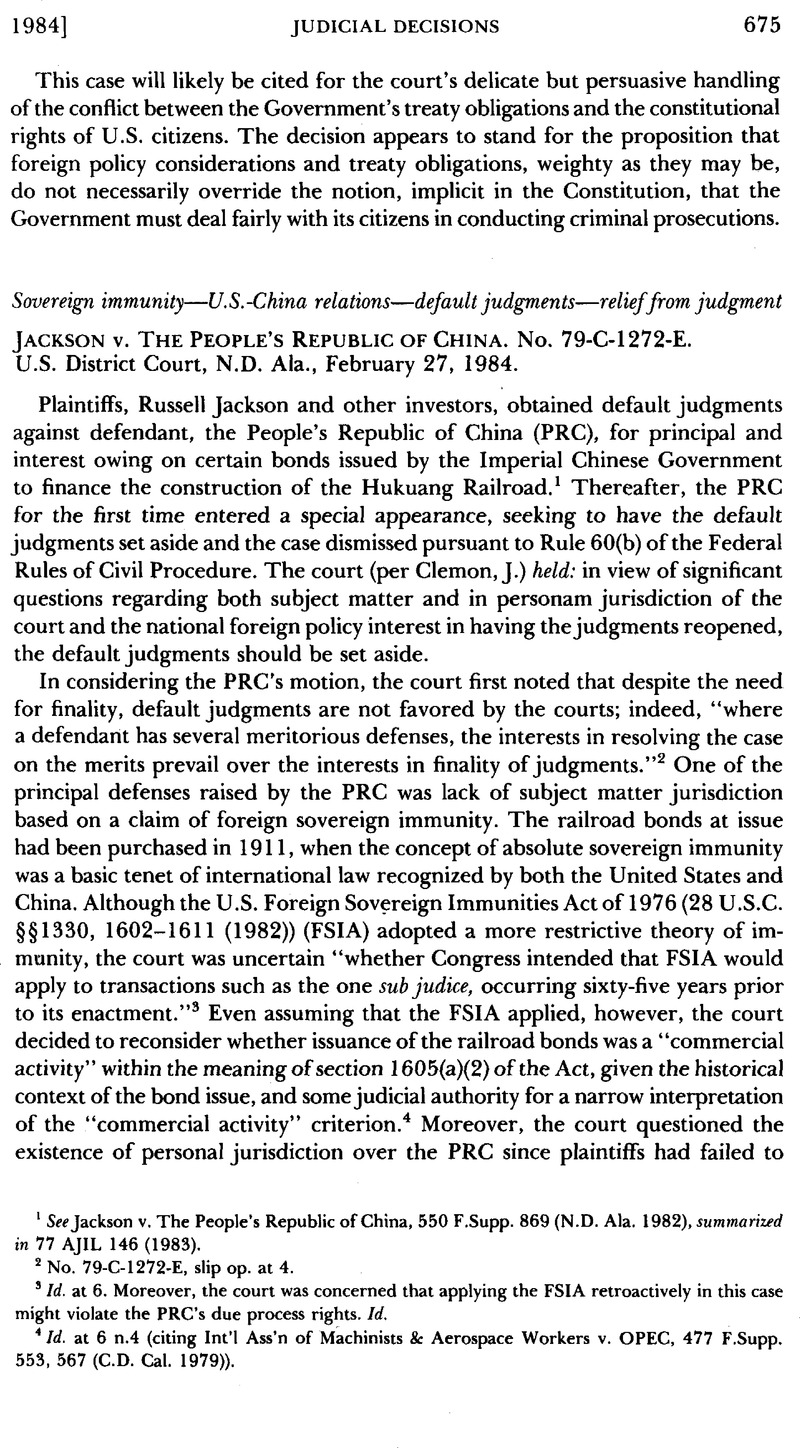No CrossRef data available.
Published online by Cambridge University Press: 23 March 2017

1 See Jackson v. The People’s Republic of China, 550 F. Supp. 869 (N.D. Ala. 1982), summarized in 77 AJIL 146 (1983).
2 No. 79-C-1272-E, slip op. at 4.
3 Id. at 6. Moreover, the court was concerned that applying the FSIA retroactively in this case might violate the PRC’s due process rights. Id.
4 Id. at 6 n.4 (citing Int’l Ass’n of Machinists & Aerospace Workers v. OPEC, 477 F. Supp. 553, 567 (CD. Cal. 1979)).
5 Slip op. at 9. The Secretary’s affidavit stated in part:
The United States believes that the PRC’s initial failure to appear in these proceedings was based on its belief that international law did not require it to do so. . . . The United States has expended considerable diplomatic efforts over the last two and one-half years to persuade the PRC that it is appropriate under international and United States law, and in the best interest of bilateral relations between the two nations, that the PRC appear and present its defenses to this Court. . . . Permitting the PRC to have its day in court will significantly further United States foreign policy interests; conversely denying it that day in court is likely to have a negative impact on United States interests.
6 Id.
7 See, e.g., Banco para el Comercio Exterior de Cuba v. First National City Bank, 658 F.2d 913 (2d Cir. 1981) (assuming FSIA could be applied retroactively); Corporacion Venezolana de Fomento v. Vintero Sales Corp., 629 F.2d 786 (2d Cir. 1980) (FSIA not intended to provide jurisdiction for cases pending at the time of enactment).
8 See, e.g., Corporacion Venezolana de Fomento, 629 F.2d at 791.